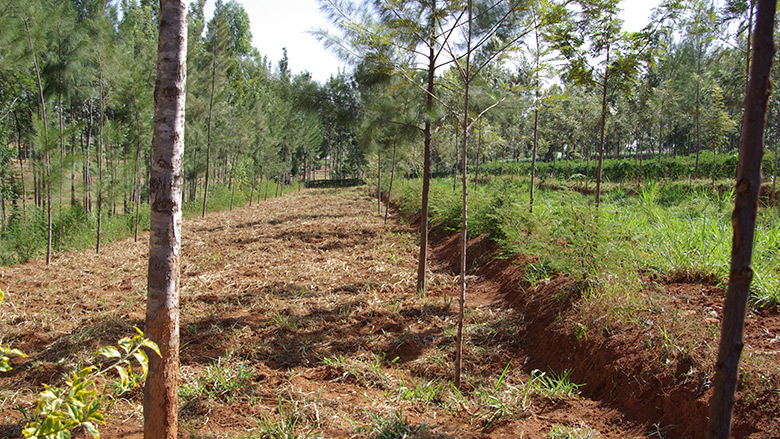DESCRIPTION
The Kenya Sustainable Agriculture Land Management Project has helped small-holder farmers build smart agriculture skills. This in turn has led to higher crop yields, increased income and food security, and resilience to a changing climate. The project has been implemented with support from the Swedish nongovernmental organization, Vi Agroforestry, on approximately 45,000 hectares in Kenya’s Nyanza and Western provinces.
The project has to date captured 25,000 tons of carbon dioxide, generating carbon credits. Payments from the BioCarbon Fund for these reduced emissions extend an added layer of support and income to small and medium-sized landholders. As farmers learn new methods to revitalize their land—planting trees and crops, and harvesting in ways that produce natural nitrogen fertilizers in the soil and benefit the longevity of the land—they reap the benefits and share their experiences with their communities.
CONTEXT
Farmers in Western Kenya have been exposed to unpredictable rainfall, droughts, and soil degradation. A lack of diversification of agricultural practices has further increased food insecurity.
RESULTS AND ACHIEVEMENTS
- This is the first agricultural land management project to issue carbon credits, and it uses the first methodology developed for carbon accounting from sustainable agricultural land management practices.
- The project generates substantial benefits to farmers: maize yields tripled in three years; over 30,000 smallholder farmers have been trained in sustainable land management practices; the Kenyan farmers have received $65,000 in carbon revenue for environmental services.
- A total of 25,000 tons of carbon dioxide have been sequestered so far as a result of better agriculture practices.
- This project includes the first Emissions Reduction Purchase Agreement (ERPA) to be signed for an African soil carbon project.
- Based on local tradition, women typically do not own land but they are actively engaged in the Kenya SALM project and are known for adopting more diverse land practices and producing higher profits. They have taken on leadership roles, aggregating information from farms and training the community.
